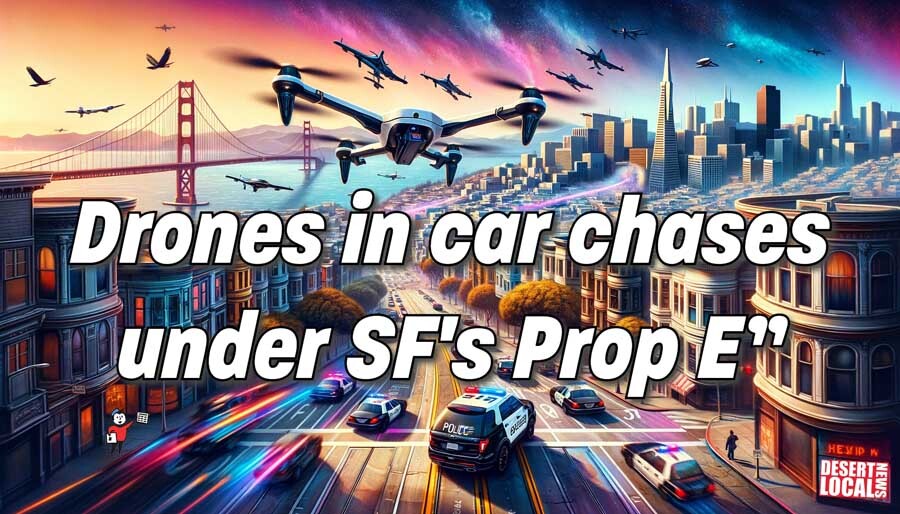Notifications

Posted by - News Staff![]() \
\
February 26, 2024 \
Filed in - Law & Order \
Police Department San Francisco Drones Proposition E \
1.1K views \ 0 reviews
DLNews Law Enforcement:
In March, San Francisco voters will face a pivotal decision with Proposition E, a measure that proposes significant changes to the city's approach to law enforcement and surveillance. This proposal comes in the wake of incidents that underscore the potential risks and consequences of high-speed police chases, such as the harrowing experience of Ciara Keegan, a 25-year-old who was injured when a robbery suspect involved in a police pursuit crashed into her vehicle.
Proposition E seeks to amend restrictions imposed in 2019 on the police department's use of surveillance technology, notably enabling the use of drones during high-speed chases. Advocates for the measure argue that this technological integration could mitigate the risks associated with traditional pursuit methods, potentially reducing the incidence of injuries to bystanders and officers alike.
Critics, however, raise significant concerns. They worry that the broader use of drones and the rollback of surveillance technology oversight could lead to increased police chases, putting the public at greater risk. The measure's potential to permit police chases for misdemeanor crimes further amplifies these concerns, highlighting fears of escalating surveillance and pursuit for lower-level offenses in one of the nation's most densely populated cities.
This debate is set against a backdrop of evolving police tactics and surveillance technology use across the United States. With over 1,400 police departments employing drones, and some exploring drone-first responder programs, the outcomes of San Francisco's Proposition E could resonate well beyond the city's borders, influencing law enforcement practices nationwide.
Opposition to Proposition E is rooted in broader considerations of civil liberties and the efficacy of police surveillance technologies. Critics, including organizations like the ACLU and the Electronic Frontier Foundation, argue that the measure could erode hard-won reforms designed to ensure transparency and public oversight of surveillance tools. They caution against a shift towards more unilateral police powers, highlighting the importance of balancing public safety with respect for individual rights and community trust.
Moreover, the proposition's implications for racial justice and equity cannot be overlooked. Historical data revealing disproportionate use of force against Black and Hispanic residents in San Francisco underscores the need for careful scrutiny of any policy that could exacerbate these disparities.
As San Francisco voters weigh the merits of Proposition E, they are confronted with a complex array of considerations: the potential benefits of advanced surveillance technology in enhancing public safety, the risks of increased police pursuits and surveillance, and the broader implications for civil liberties and community-police relations. The decision on Proposition E thus represents not only a choice about specific police tactics but also a broader referendum on the values and priorities that will guide law enforcement in San Francisco and potentially across California.

At Desert Local News, connections are everything. We're not just another social networking platform—we're a lively hub where people from all walks of life come together to share stories, spark ideas, and grow together. Here, creativity flourishes, communities grow stronger, and conversations spark global awareness.
Comments